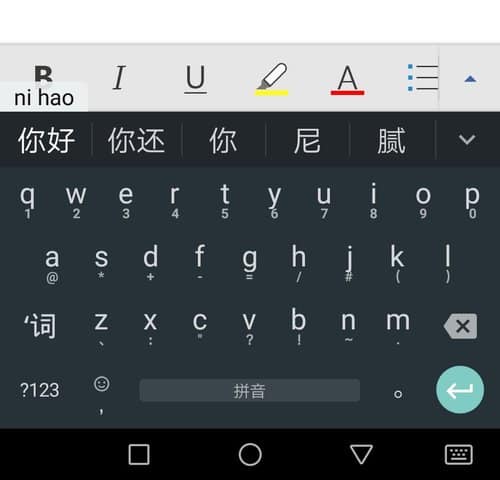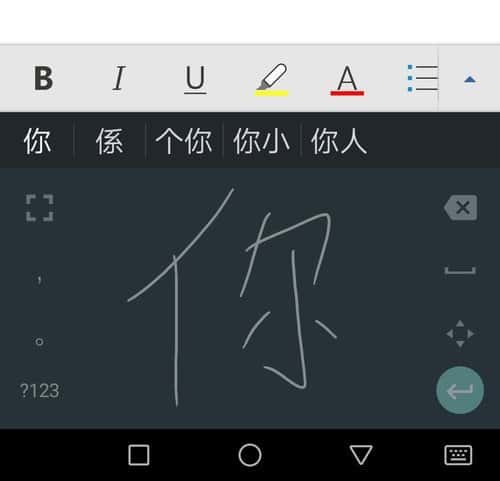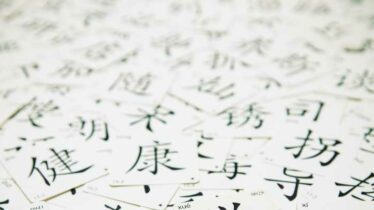The Chinese alphabet
A common question about the ‘Chinese alphabet’ we get from students is: “I heard Chinese is a box-like ‘character language’, does it have an alphabet?”
And yes, opposite to the English language, the Chinese language is an ideographic language. However, Chinese people have always been working on different methods to show how the characters are pronounced. The system we are using now is called “Hanyu Pinyin”, which consists of Roman letters, therefore, these letters are what people referred to as the Chinese alphabet. It was created in the 1950s in mainland China and is widely adopted internationally since 1982.
The Chinese alphabet
The Chinese alphabet is named Pinyin, and is based on Roman letters, but one letter is missing: the v (which is replaced by “ü” instead, which is different from u). It was introduced to assist the learning of the Chinese language. Before this so called Chinese alphabet, there were different methods to figure out how a Chinese character is pronounced, but it was too complicated. Another reason the Chinese alphabet was required was the use of conventional typewriters.
The Chinese government and the educational development wanted to promote this new Chinese alphabet in Mainland China starting from the 1950s, so that also people that know nothing about Chinese characters could still read. And so, a group of linguistics created the Hanyu Pinyin system (汉语拼音), choose one set of coding/decoding system to show the real pronunciations of all Chinese characters, so the illiterate Chinese people and foreigners can learn this language more easily. In the end, they found that many sounds of Roman letters are fairly close approximations of Mandarin, with exception of some cases.
Based on this idea, rather than letter by letter, one Chinese Hanzi character has a corresponding set of roman letters (which is called Pinyin syllable) to indicate its sound. When someone is learning Chinese, at the very beginning, words are shown just in Pinyin, and later, when one is learning characters, the syllable will be marked above the character to help you to memorize the character.
Pinyin in daily life is very common. Here’s a road sign in Suzhou, with the Chinese hanzi characters and the Chinese alphabet signs beneath: 南施街Nán shī Jiē (but there are no tone-marks on the Pinyin on the traffic sign).
Read about the pronunciation of tones, initials, finals & accents
How is the Chinese alphabet?
Now we understand that “Pinyin” is not real Chinese, nor the real alphabet, we understand that it’s used to show the pronunciations of Chinese characters. So if you write in Pinyin to Chinese people, they probably won’t understand what you mean. However, the Chinese alphabet is extremely important in modern life in China, mainly in the following aspects:
- To indicate the pronunciations for Chinese characters so all nation-wide can understand these characters. In 1949, 80% of the population was still illiterate. So to have Pinyin marked over Chinese characters on the signs, newspapers, etc would help lots of people to understand.
- To assist in teaching Mandarin. The Chinese alphabet is widely adopted in primary schools and other adult education textbooks, making it easier for children or formerly illiterate people to continue with self-study after a short period of Pinyin literacy instruction. In addition, the Chinese alphabet has become a tool for foreigners to learn Mandarin pronunciation.
- Used for the sorting of dictionaries and dictionaries, and the indexing of books and scholarly works.
- The spelling of Chinese geographical or personal names using the Chinese alphabet has become the most common way to transcribe them in English.
- Pinyin has also become the dominant method for entering Chinese text into computers, phones, and other digital products.
Therefore, nowadays it’s not a huge deal if you can not write Chinese characters stroke by stroke yet, as long as you know the right Pinyin and the overall of the character, because you can type and choose the right one out of the bunch that the computer/cellphone input system provides.
How to type Chinese without an alphabet?
The Chinese language doesn’t have a real alphabet. There are no letters that make up written words, only lines that together form a character, a sort of pictogram representing a word. So without letters, how can someone type words in Chinese? Fortunately, in 1949, Chinese language started using a roman alphabet system to represent the sounds of standard Mandarin. This system is called the Chinese alphabet. The Pinyin system helps people learning the language visualize the pronunciation. It also allows you to type Chinese characters on computers and phones.
In order to type in Chinese on a computer, you will need to install a “language pack”, which sets up a second language keyboard. This will let you type in another language with spell check, accent marks, and special symbols. Usually there is a keyboard shortcut that involves the space bar, shift key, or caps lock key to change between the different language keyboards. This is the basic set up.
Typing in Chinese on a computer is like magic. Type the pinyin for the word and suggested characters will appear on the screen. Type the space bar to select the first option and use the number keys to select any other option. You can type one character at a time or whole sentences. For example, if you want to type “hello”, you would type n i h a o then the space bar to select 你好. If you are using the Chinese keyboard and just want to select the letters you typed, not a character, press the Enter key.
On a smartphone, there are many options for writing in Chinese. Writing using pinyin is similar to a computer except that you have the option to use either a full 26 letter keyboard or a 9-button keyboard, similar to old phones. The biggest difference with a smart phone’s Chinese input is that you can draw a character. When you use this keyboard, there is a blank space for you to draw the strokes and the suggested characters appear above for you to select. This is an especially useful feature when you see a character that you don’t recognize and want to look it up but don’t know the pinyin.

There are many different keyboards that come with different smart phone brands and computers. There are also many options that you can install from the app store and plugins for computers. The best way to find one you like is try different ones and ask your friends what they use. Different keyboard inputs also help with different aspects of studying Chinese language.
To learn more about Pinyin or to get started with your Mandarin learning, check out these pronunciation videos by GoEast Mandarin.






